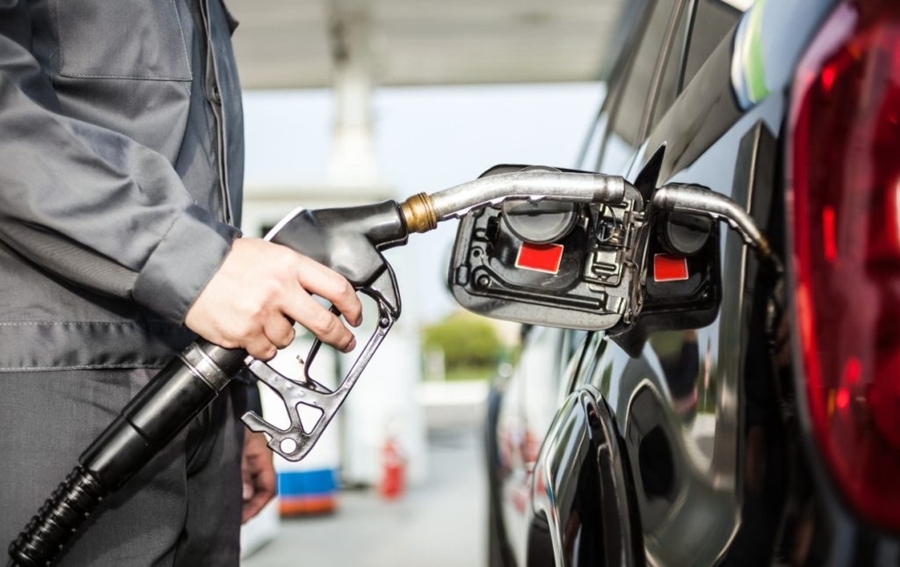Overview
Have you been asking yourself, “why my car uses more fuel than usual?” You’re not alone. Many drivers face the frustration of declining fuel efficiency. This guide explores the reasons a car uses more fuel than usual – from maintenance issues like dirty filters and underinflated tires to driving habits such as aggressive acceleration.
Check out: Fuel Cost Comparison Calculator
We’ll also look into how weather, road quality, and traffic patterns can affect gas mileage in both gasoline and diesel vehicles. Understanding these factors helps diagnose problems early, potentially saving money at the pump, reducing environmental impact, and avoiding costly repairs. If your car uses more fuel than usual, it’s time to explore the possible causes and solutions.
7 Powerful Reasons Your Car Uses More Fuel Than Usual: Quick Scan
If your car uses more fuel than usual, here are 7 key reasons to consider before diving deeper into diagnostics
1. Poor Driving Habits
If your car uses more fuel than usual, your driving style might be to blame. Rapid acceleration, frequent braking, and idling all increase fuel consumption. Driving aggressively forces the engine to work harder than necessary, wasting gas in the process. Maintaining a smooth, steady speed and avoiding heavy throttle inputs can go a long way in improving fuel economy.
2. Underinflated Tires
When your tires are underinflated, they create more rolling resistance. This means your engine has to exert more effort, which is one reason your car uses more fuel than usual. Keeping tires at the manufacturer’s recommended PSI helps your vehicle roll more efficiently and improves your overall gas mileage.
3. Engine or Sensor Problems
A major reason a car uses more fuel than usual is faulty engine components or sensors. A worn-out oxygen sensor, malfunctioning MAF sensor, or misfiring spark plug can cause the engine to run rich—burning more fuel than necessary. These issues often trigger a check engine light, so don’t ignore it.
4. Clogged Air Filters or Fuel Injectors
Dirty air filters and clogged injectors can cause your car to use more fuel than usual. These components limit airflow or disrupt the fuel spray pattern, leading to incomplete combustion. The engine then compensates by burning more fuel to maintain power output. Regular maintenance of these parts can restore optimal fuel efficiency.
5. Carrying Excess Weight
One often-overlooked reason a car uses more fuel than usual is extra weight. Carrying heavy items in your trunk or using a roof rack creates additional drag and strain. Even 100 extra pounds can decrease mileage. Clear out unnecessary cargo to lighten the load and improve efficiency.
6. Poor Fuel Quality or Wrong Octane
Using poor-quality fuel or the wrong octane rating can result in inefficient combustion. If your car uses more fuel than usual, think about where you’re filling up. Low-grade fuel may contain fewer detergents, leading to deposits in your fuel system. Always follow the manufacturer’s fuel guidelines to keep your car running efficiently.
7. Environmental or Road Conditions
Sometimes, the reason your car uses more fuel than usual is outside your control. Cold weather, hilly terrain, and stop-and-go traffic all contribute to increased fuel usage. Even strong headwinds and rough road surfaces can make your engine work harder, leading to a drop in miles per gallon.
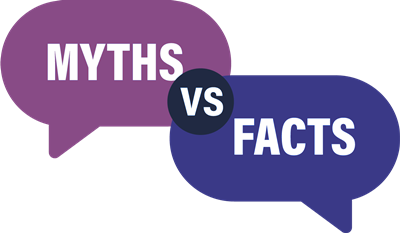
Fuel Economy Myths Debunked
Noticing your car using more fuel than usual? Before you jump to conclusions or blame the gas station, it’s worth debunking some common myths that often mislead drivers trying to boost their MPG.
Myth 1: You Should Warm Up Your Car for 10 Minutes
Modern engines don’t need long warm-up times. Letting your car idle for extended periods—especially in the winter—just wastes fuel. If you’re seeing your car using more fuel than usual during colder months, this old habit might be partly to blame. About 30 seconds is all your engine needs before you can gently start driving.
Myth 2: Premium Gas Improves Mileage
Many drivers assume premium fuel leads to better efficiency, but unless your vehicle requires it, you’re not gaining any benefits. It’s more expensive and often delivers the same mileage as regular gas. Using premium won’t stop your car using more fuel than usual—it might just lighten your wallet.
Myth 3: Overinflating Tires Saves Fuel
Low tire pressure does hurt mileage, but that doesn’t mean overinflating them helps. Overinflated tires can reduce traction, wear unevenly, and actually make your car use more fuel than usual on rough roads. Stick to the manufacturer’s recommended PSI for the best balance of efficiency and safety.
Myth 4: Cruise Control Always Saves Gas
Cruise control is helpful on flat highways, but not on hills. It can surge your throttle to maintain speed on inclines, which hurts fuel economy. If you’ve noticed your car using more fuel than usual on road trips, misusing cruise control could be a contributing factor.
Myth 5: A/C Is Always Worse Than Open Windows
At low speeds, open windows are more fuel-efficient. But at highway speeds, the added aerodynamic drag from open windows can make your car use more fuel than usual compared to using the A/C moderately. The best option? Balance the two based on your driving environment.
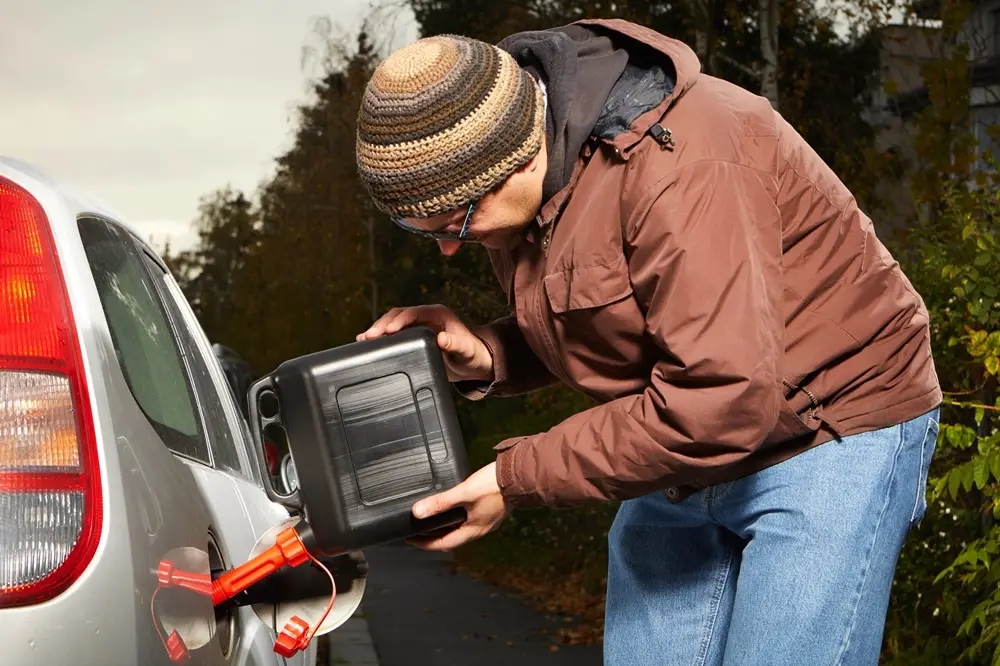
Understanding Fuel Consumption Problems
You’ve probably been there before – filling up your tank more often and wondering where all your gas money is going. My friend Jake ran into this issue recently. “I swear I’m stopping at the pump every few days now,” he told me, clearly annoyed. If your car uses more fuel than usual, it’s not just your imagination.
Whether you’re driving a gas-powered car or a diesel engine, when your vehicle suddenly starts burning through fuel, it’s a sign something’s off. It could be mechanical, environmental, or related to how you drive. Either way, your wallet definitely notices.
Why My Car Uses More Fuel Than Usual
So, what’s really happening when your car uses more fuel than usual? There are many possible culprits, and figuring out which one applies to your situation is the first step in fixing the problem.
For Jake, the solution was straightforward. “I didn’t realize my new commute, with all that stop-and-go traffic, was tanking my gas mileage,” he admitted. But driving habits are only one piece of the puzzle when your car starts consuming more gas than it used to.
Seasons
Did you know the weather can mess with your fuel economy? In colder seasons, your car uses more fuel than usual just to warm up and maintain operating temperature. Cold engine oil thickens up, which means the engine works harder—sort of like jogging through snow instead of on pavement. Plus, winter fuel blends are less efficient than summer ones, adding to the problem.
Maintenance Issues
Maintenance issues are another big reason why your car uses more fuel than usual. Dirty air filters, worn spark plugs, oxygen sensor failures, and low tire pressure all reduce fuel efficiency. Staying on top of car maintenance can seriously help you get better mileage and avoid extra costs at the gas station.
Common Maintenance Issues Affecting Fuel Economy
When Jake finally visited a mechanic, they found multiple issues that were wrecking his mileage. It wasn’t just traffic. His car was overdue for service, which led to higher fuel consumption. If your car uses more fuel than usual, these are some common culprits:
- Clogged air filters: Like trying to breathe through a straw. A dirty air filter restricts airflow to the engine, forcing it to burn more gas.
- Tire pressure problems: Underinflated tires cause rolling resistance. Even just a few PSI below the recommended level can hurt gas mileage.
- Oxygen sensor failures: This component regulates your fuel-air mix. When it’s faulty, the engine may overcompensate and burn 30–40% more fuel.
- Worn spark plugs: These can’t properly ignite fuel, causing incomplete combustion and wasted gas.
- Dirty fuel injectors: When clogged, they affect how fuel is delivered into the engine, increasing consumption.
“I couldn’t believe the difference after I got my car serviced,” Jake said. “It felt like a brand-new ride.” Regular maintenance doesn’t just save gas—it extends your car’s life and reduces repair bills.
If you drive a diesel and notice your car uses more fuel than usual, it might be time to check your diesel particulate filter (DPF) or inspect for injector issues. Diesel engines need clean, well-maintained systems to keep consumption in check.
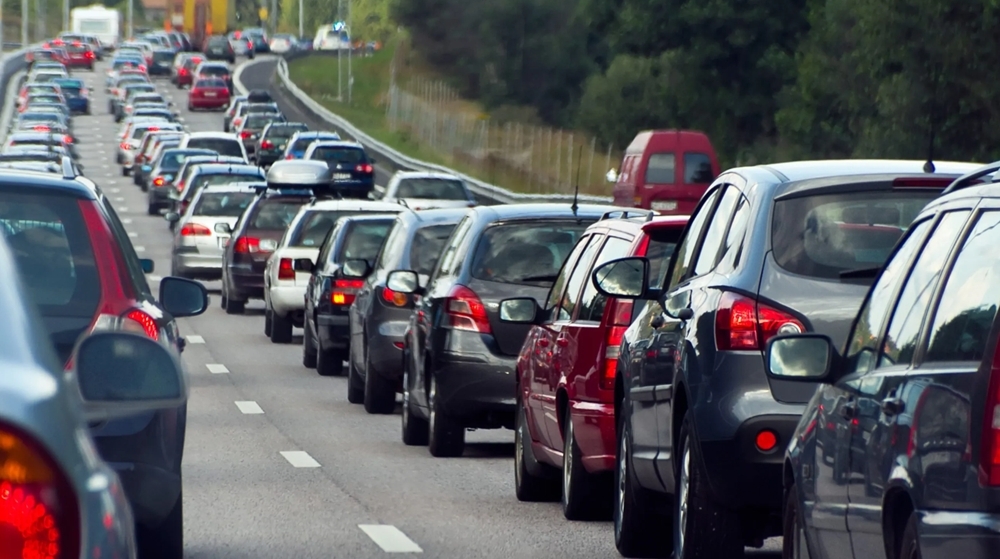
Driving Habits That Increase Fuel Consumption
Your driving style has a major impact on how much fuel your vehicle burns—often more than you might think. When my colleague Sarah mentioned that her car uses more fuel than usual, I asked if she’d considered her recent driving habits before assuming something was wrong with the vehicle itself.
Aggressive Driving
Aggressive driving is one of the biggest enemies of good gas mileage. Rapid acceleration and hard braking can slash your highway fuel economy by up to 30%, and your city mileage by a staggering 40%! Sarah realized she’d picked up some bad habits. “I’m always rushing lately, so I floor it at green lights and slam the brakes at red ones,” she confessed. If your car uses more fuel than usual, your right foot might be the culprit.
Idling
Leaving your engine idling is another sneaky gas waster. While older cars may have needed a few minutes to warm up, modern engines only need about 30 seconds—even in winter. If you’re parked or waiting and not in traffic, shutting the engine off and restarting later is better for both the environment and your fuel consumption. Prolonged idling can definitely be a reason why your car uses more fuel than usual.
Driving Too Fast
Speeding feels good, but it drains your tank fast. Fuel efficiency drops rapidly at speeds above 50 mph because of air resistance. In fact, for every 5 mph over that threshold, it’s like adding 20 cents more per gallon. If you’ve recently started speeding on the highway more often, don’t be surprised if your car uses more fuel than usual.
Cruise control can help—especially on flat roads—by maintaining a consistent speed and improving fuel economy. But on hilly terrain, it might do more harm than good by pushing your engine to work harder to maintain speed uphill. Being strategic about when to use it can save you money at the pump.
External Factors Affecting Your Fuel Economy
Sometimes, the reason your car uses more fuel than usual isn’t due to anything you’re doing wrong—it’s outside factors you might not have thought about. Everything from weather to traffic to road quality can affect how efficiently your car burns fuel.
Weather
- Temperature extremes: Both freezing and sweltering weather can hurt fuel economy. Cold weather increases friction inside the engine, while hot weather often leads to extra A/C usage.
- Wind: Driving into a headwind makes your engine work harder, lowering mileage. A tailwind can actually help!
- Rain and snow: Wet or snowy roads create resistance, meaning your car uses more fuel than usual just to keep moving.
- Humidity: High humidity can change how efficiently fuel combusts in some engines, especially older models.
Road Conditions
Rough or unpaved roads don’t just make for a bumpy ride—they also demand more energy from your vehicle. Constant stops, speed changes, and potholes reduce gas mileage. Sarah’s fuel efficiency dropped after construction rerouted her daily drive through a rougher area. It’s not surprising that her car uses more fuel than usual on these detours.
Traffic
Stop-and-go traffic is a notorious fuel guzzler. Constantly braking and accelerating keeps your car from operating efficiently. If your commute has gotten more congested lately, it could explain why your car uses more fuel than usual.
Hills
Going uphill takes more fuel than cruising on flat roads—your engine needs to generate more power. If you’ve recently changed your route or moved to a hilly area, that alone could cause your car to use more fuel than usual. Gravity isn’t on your side when you’re constantly climbing!
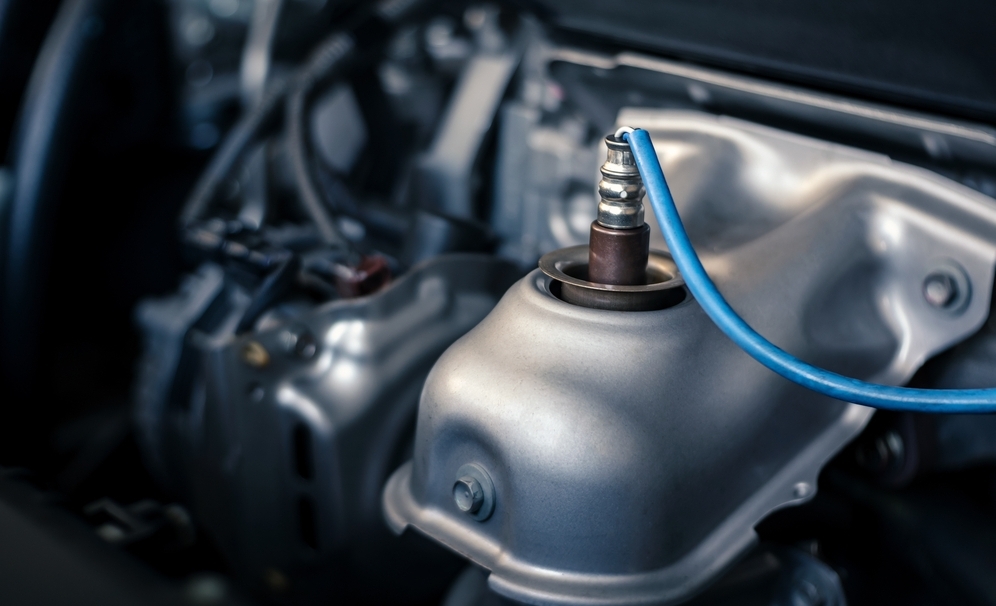
Vehicle Issues That Lead to Poor Fuel Economy
Sometimes, mechanical problems are the reason your car uses more fuel than usual, even if your driving habits haven’t changed. Jake’s friend Miguel learned this the hard way when his check engine light popped on and his mileage tanked. A visit to the mechanic uncovered several underlying issues behind the sudden increase in fuel consumption.
O2 Sensor Malfunctions
One of the most common fuel-wasting culprits is a faulty oxygen sensor. This part helps your engine’s computer adjust the fuel-to-air mixture for optimal performance. When it stops working properly, your engine may start running “rich,” meaning it burns too much gas. Not only does this reduce efficiency, but it also increases emissions. In fact, a bad O2 sensor can cause your vehicle to burn up to 40% more fuel in extreme cases—a major reason why your car uses more fuel than usual.
Fuel Injector Problems
When fuel injectors are clogged or leaking, they can’t deliver fuel with the precision your engine needs. This results in wasted gas and uneven combustion. In Miguel’s case, two faulty injectors were causing his engine to guzzle more petrol than necessary. If you’ve noticed you’re filling up more often, fuel injector trouble could be behind why your car uses more fuel than usual.
Worn Spark Plugs & Ignition Coils
Misfiring engines waste a lot of energy. Worn spark plugs, damaged ignition coils, or compression issues prevent your fuel from burning efficiently. This not only kills your miles per gallon but can also damage expensive parts like the catalytic converter. When your car is burning more fuel than expected, a misfiring engine is worth investigating.
Other Mechanical Problems That Increase Fuel Use:
- Dragging brakes: If your brake calipers aren’t releasing fully, they create constant resistance, making your engine work harder and burn more gas.
- Transmission issues: Slipping gears or using the wrong transmission fluid can hurt fuel efficiency, leading to more frequent trips to the gas station.
- Clogged exhaust systems: Blocked catalytic converters or mufflers increase back pressure, reducing engine performance and increasing fuel burn.
- Fuel system blockages: A clogged fuel filter or failing fuel pump restricts flow, causing poor combustion and wasted gas.
Solutions and Prevention for Excessive Fuel Consumption
Once Miguel resolved his car’s mechanical issues, he took fuel efficiency more seriously than ever. “It’s not just about saving money at the pump,” he told me. “It’s about taking care of my car and the environment.” If you’ve been wondering why your car uses more fuel than usual, here are some actionable steps to help reverse the trend.
1. Stay on Top of Regular Maintenance
Routine maintenance is key to preventing fuel waste. Be sure to:
- Change your oil regularly using the recommended grade
- Replace the air filter every 15,000 to 30,000 miles
- Change the fuel filter according to your vehicle’s manual
- Replace spark plugs and ignition components as needed
- Check tire pressure monthly and ensure your wheels are properly aligned
If you drive a diesel engine and notice your car uses more diesel than usual, focus on maintaining the fuel injectors and the diesel particulate filter. Diesel systems are especially sensitive to neglect.
2. Use Quality Fuel
Stick with reputable fuel stations to avoid contamination. Even if your car doesn’t require premium fuel, gas with the right detergent additives helps keep the injectors and combustion chamber cleaner, which improves overall fuel economy. A dirty system is often a silent reason your car uses more fuel than usual.
3. Reduce Excess Weight and Drag
It may not seem like a big deal, but carrying extra weight or using rooftop carriers when you don’t need them can have a significant impact on your MPG. Remove unnecessary cargo and stow unused roof racks. Miguel couldn’t believe how much fuel he saved after clearing out the heavy tools he’d been unknowingly hauling around.
4. Track Your Fuel Economy
Keeping an eye on your mileage is one of the best ways to catch issues early. Many vehicles come with a built-in fuel economy display, but you can also track it manually—just divide the miles you’ve driven by the gallons filled. If you suddenly see your car using more fuel than usual, it might be time for a check-up.

When to Call a Mechanic
You can troubleshoot a lot on your own, but if your car uses more fuel than usual and you’ve already checked the basics, it might be time to call in a pro. If you’re still wondering “why is my car burning more gas than normal?” after inspecting your tires, driving habits, and maintenance schedule, a certified mechanic—or even a mobile mechanic—can help pinpoint hidden issues.
A steady check engine light is a major red flag. Today’s cars rely heavily on computer diagnostics, and those systems often catch things that aren’t obvious—like a malfunctioning sensor or internal engine inefficiency. A good mechanic can read your car’s trouble codes and quickly identify why your car uses more fuel than usual, even when everything seems fine from the outside.
Other signs that warrant professional attention include:
- Rough idling
- Hesitation during acceleration
- Stalling
- Unusual engine noises
- Sudden dips in fuel economy
These symptoms often point to deeper issues—like ignition system faults, timing problems, or fuel delivery malfunctions—that a DIY fix won’t solve.
Choosing the Right Mechanic
When you need help, choosing the right professional makes all the difference:
- Dealership Service Departments: Know your exact model best. Highest cost, but best for recalls or warranty issues.
- Independent Repair Shops: Often more affordable, with personalized service and solid diagnostic tools.
- Specialty Shops: Focused on specific makes or systems (like European vehicles or diesel engines). Typically priced between dealerships and independents.
Look for ASE certification, and ask whether they use advanced diagnostic tools. A reputable shop will explain the issue in plain language and offer a clear estimate before doing any work. That transparency matters—especially if your car is using more petrol than it used to and you want to get to the root cause without unnecessary repairs.
Miguel learned the hard way what happens when you delay a visit to the shop. Ignoring his check engine light for months led to a clogged catalytic converter, turning a small issue into a pricey fix that could’ve easily been avoided.

FAQ: Car Using More Fuel Than Usual
-
Why is my car using more fuel than usual all of a sudden?
A sudden increase in fuel consumption could be caused by a number of issues, such as low tire pressure, dirty air filters, failing oxygen sensors, or even changes in driving habits. If your car is using more fuel than usual, start by checking for any dashboard warning lights, unusual driving patterns, or overdue maintenance tasks.
-
Can bad spark plugs make my car use more fuel than usual?
Yes. Worn spark plugs cause incomplete combustion, which wastes gas. If you’ve noticed your car using more fuel than usual, old or faulty spark plugs might be the culprit. Replacing them is a relatively cheap fix that can improve fuel efficiency.
-
Does cold weather cause your car to use more fuel than normal?
Absolutely. In colder temperatures, engines take longer to reach optimal operating temperatures, and oil thickens, increasing friction. If your car is using more fuel than usual in winter, this seasonal factor might be the reason.
-
Is a dirty air filter why my car is using more fuel than usual?
Definitely. A clogged air filter restricts airflow to the engine, causing it to work harder and burn more gas. Replacing your air filter regularly can help prevent your car using more fuel than usual.
-
Could my driving habits be why my car is using more fuel than usual?
Yes. Aggressive acceleration, hard braking, speeding, and excessive idling all lower fuel efficiency. Smooth, steady driving helps avoid your car using more fuel than usual due to unnecessary waste.
-
How do I know if my fuel injectors are causing my car to use more fuel than usual?
Symptoms of fuel injector problems include rough idling, poor acceleration, and—you guessed it—your car using more fuel than usual. Dirty or leaky injectors disrupt proper fuel delivery and reduce mileage.
-
Should I be concerned if my car is using more fuel than normal but drives fine?
Yes, even if performance feels normal, increased fuel use can indicate developing issues like sensor failures, dragging brakes, or underinflated tires. If your car is using more fuel than usual, it’s smart to investigate early to prevent costly repairs later.
Need a mechanic? Find one on the Mobile Mechanic Directory
Conclusion: Take Control of Your Fuel Economy
Understanding the reasons behind your car using more fuel than usual empowers you to act before small issues turn into major repairs. Whether it’s refining your driving habits, keeping up with scheduled maintenance, or calling in a mechanic, taking early steps can improve both performance and efficiency.
From Sarah’s aggressive driving to Miguel’s neglected fuel injectors, we’ve seen how many different factors can lead to your car using more fuel than usual. The good news? Most of these issues are preventable or fixable.
Don’t Ignore the Warning Signs
If you notice your car using more fuel than usual, don’t brush it off. Take these simple actions first:
- Check tire pressure and wheel alignment
- Remove excess weight from your vehicle
- Reflect on recent changes in your driving habits
- Inspect air filters, spark plugs, and fuel injectors
Tracking your MPG regularly can also reveal patterns. If your fuel consumption keeps rising, it’s worth investigating further. Diesel drivers should pay special attention to diesel particulate filters (DPFs) and high-pressure fuel systems, which are often behind a car using more fuel than usual in diesel models.
Minor increases in fuel use during extremely hot or cold weather are expected, but significant or sudden changes usually mean something’s wrong. Catching the cause early can save you money at the pump and help avoid costly repairs later.
Taking control of your fuel economy today means a smoother ride, fewer emissions, and more money in your pocket down the road.

